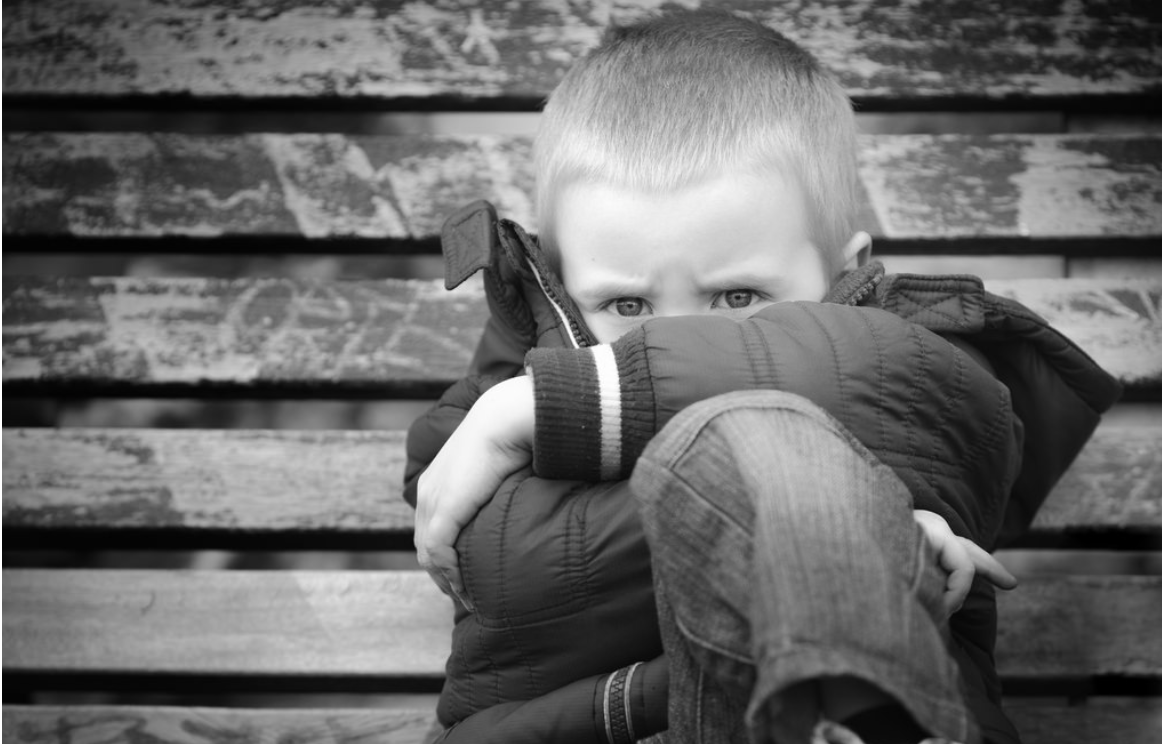Children want to experience freedom. Most parents will see the need to limit a child’s freedom if they fear them making terrible choices or creating negative, self-limiting habits. This creates the most common, consistent and emotionally draining conflict in parenting. With no guidance or boundaries at all, most kids could end up creating their own version of Lord of the Flies; a mess that you’ll have to parentally clean up eventually. Fortunately, when applied skillfully, rules do far more than keep kids on a healthy track. They help kids cultivate their decision-making ability, and profoundly increase their self-awareness while strengthening your relationship with them.
The 5 things you need to consider when making rules that your kids will follow:
1. Rules may be important, but without a strong relationship in place, they tend to be less effective.
When your child hates a rule, more often than not, they’ll still follow it if they have a good relationship with you. To tend this relationship, it’s therefore important not only respect there struggle with it, but to also try to help them understand why it is that you feel it wise for them to follow rules they don’t feel are necessary. Why?
The problem is that children don’t see or fully understand the bigger picture that you are considering, or they straight-up don’t care. Most rules parents introduce add stress to the parent-child relationship. Young ones can end up believing their parents don’t understand them, and they can’t comprehend the bigger-picture benefit of rules that trigger their pain or fear. Instead of feeling overpowered, they need to feel understood. Whether or not your children challenge and break your rules, doing your best to help them understand your reasoning as it relates to their fears or stress is a critical first step. It creates a mutually respectful foundation for rules to rest on, so stress can be tempered by the softer connection and hopefully greater comprehension.
Without the resiliency of this bedrock of understanding and connection, rules that are enforced are more likely to create resentment and/or rebellion. Here’s my simply formula for that:
Rules – Relationship = Resentment and/or Rebellion
Your kids may still be upset with you and your rules, but there is a tremendous difference in the kind of frustration that your child will recover from in a day or two, and the kind of frustration that creates distance and deeper disconnection for months, that predictably arises when the quality of the relationship is not given enough attention.
2. If your rules protect and support them in some some way, they come from a deeper place. Be willing to sharing this with your kids.
The fastest way to make your kids resent you is pulling the ‘because I said so’ card. It means you’re fixated on what you want or don’t want your kids to do, without much reasoning or real guidance behind that fixation. If you want your children to model transparency and reveal vulnerability, you need to do the same with your actual reasoning for a rule. Knowing why you are making a decision is important to kids, even if they don’t agree with you. They don’t have to agree, or even fully understand you. That’s simply part of the reality of having less life experience, less brain development, less impulse control, and the strong tunnel-vision of a kid. You’re not just making a rule. You’re setting an example.
Before making a power play that invites a power struggle, communicate from the heart. Speak to your kids about the needs and feelings a parent has that drive parenting rules. Make sure you explain with simplicity and tact, so they wont be overwhelmed with trying to process complex emotions they can’t handle yet. That urgent situations where you only have time to set the rule/boundary and must forgo explaining are, in reality, very few and far between.
Don’t know where to start? Share the answers to questions like:
-Why don’t you like setting rules, but feel you need to as a parent in a certain situation?
-What fear, needs, or knowledge do you have that are behind setting a rule?
Of course, making sure rules come from a deeper place means you’ve got to be responsible for the rules you create. If your rules come from a selfish place, and not a healthy one, they will come back to bite you and damage the connection between you and your child. Double standards have the same effect. If you can explain your decision in a way that is honest and effective enough to actually help them understand you, it’s much better for your relationship. Remember, children’s brains do not process like yours, and can interpret things incredibly differently.
3. Process your feelings first. Then you can respond well, rather than react poorly.
It’s hard being a kid. They tend to be totally unaware that their responses or decisions are born from the impulse to feel better in some way (to have a more regulated nervous system), and they often can’t see past a craving or an urge, acting in ways that can be incredibly frustrating to deal with.
As understandable as this is, parents who can’t process their emotions well will have more conflict in their relationships with their kids. Your needs and feelings as a parent can drive your parenting towards balance, understanding, and respect, or off-road into a ditch or worse. It all depends on how well you can process your emotions as you interact with your child.
Arguing for more screen time, for example, kids don’t realize that they are responding from a truly addicted place. They truly think that their own choices, actions, and words represent what’s best for them, and can’t see otherwise. Your reaction on top of that can make it worse.
If you choose to dominate them so you “win”, and therefore feel less triggered, it will be temporary to you at best, and damaging to your child at the worst.
Face your feelings. Notice where you literally feel the physical sensation of them in your body, and breathe into them. Your nervous system is designed to calm you down by directly processing the intensity you feel if you can be present with it for even a few breaths. Notice your familiar, and likely frantic, mind-chatter. See it as nothing more than conditioned thoughts pulling you away from processing your feelings… and return to your breath.
Remember, your kids, like you, are doing their best, even if it looks like crap. Kids also give you a very important opportunity to learn how to better process your own triggers and reactions. They are the medicine you need to heal this. Fight it, and the issues will keep arising over and over and over. Be gentle with yourself, breathe into your feelings, even preemptively, when you know a situation is coming that will trigger you.
4. Get to the real reason they break a rule… and explore it.
Every rebel has a cause they feel is just. Think of your own reasons when you were their age: You didn’t agree with the rule. You felt it was unfair. What you wanted was worth the consequence of breaking the rule. You wanted to piss your parents off as a way of feeling more empowered. Maybe you simply forgot about the rule. The list goes on.
Ultimately, however, breaking rules is most often a symptom of one simple reality. Kids are more committed to another choice, and this reality is not seen and/or not being addressed or explored.
Breaking a rule opens up an opportunity to explore what is really going on within you as a parent, within your relationship with your child, or what is going on inside the heart and mind of your child. Tracing the reason for why rules are broken almost always leads directly some critical deeper need or feeling that is longing to be met or avoided. Don’t talk in circles, or argue about the broken rule. Get underneath the rule breaking to find the sacred places where true understanding, compassion, and connection are born. Children need help in seeing themselves more deeply, so nix your great, insightful speech, and instead ask great, insightful questions. Help them see the unseen forces within them that drive their behavior by exploring their choices with them. Ask them: What are the forces, fears and beliefs behind their resistance?
5. Avoid power struggles. Let them know the truth: They DO have a choice.
Once you have honored their needs and wants, and after you have shared your feelings behind why you are setting a rule, point out to your child that they are free to follow the rule fully, partially, or totally disregard it. Their choice. BUT let them know, all choices have consequences. Make sure they are totally clear on the consequences of breaking or even bending the rules.
Be clear on what the consequences look like, even if you have a child that argues every rule or decision no matter how lovingly transparent you are about your reasons. If they refuse to stop arguing, let them know that they can choose to keep arguing or choose to stop, and then be clear on what the different results of each of those choices will be.
Giving kids the power to make choices, even poor choices, teaches them how to think critically, embrace a bigger picture, work on being more able to delay gratification, become more socially intelligent, and more.
Don’t get blindsided.
Know that as your children develop and become more independent, they’ll need more understanding about your rules. This is why you want to start early if your kids are young. If they are not challenging your rules yet, it’s coming. Definitely, absolutely and certainly.
Begin now to create that more connected relationship and more intimate mutual understanding that is foundational to a lasting, strong bond with your children.

photo credit: www.pierrelognoul.be
<a href=”http://www.flickr.com/photos/62459645@N03/16439237583″>I’m seeing you !</a> via <a href=”http://photopin.com”>photopin</a> <a href=”https://creativecommons.org/licenses/by-nd/2.0/”>(license)</a>



No comments yet.